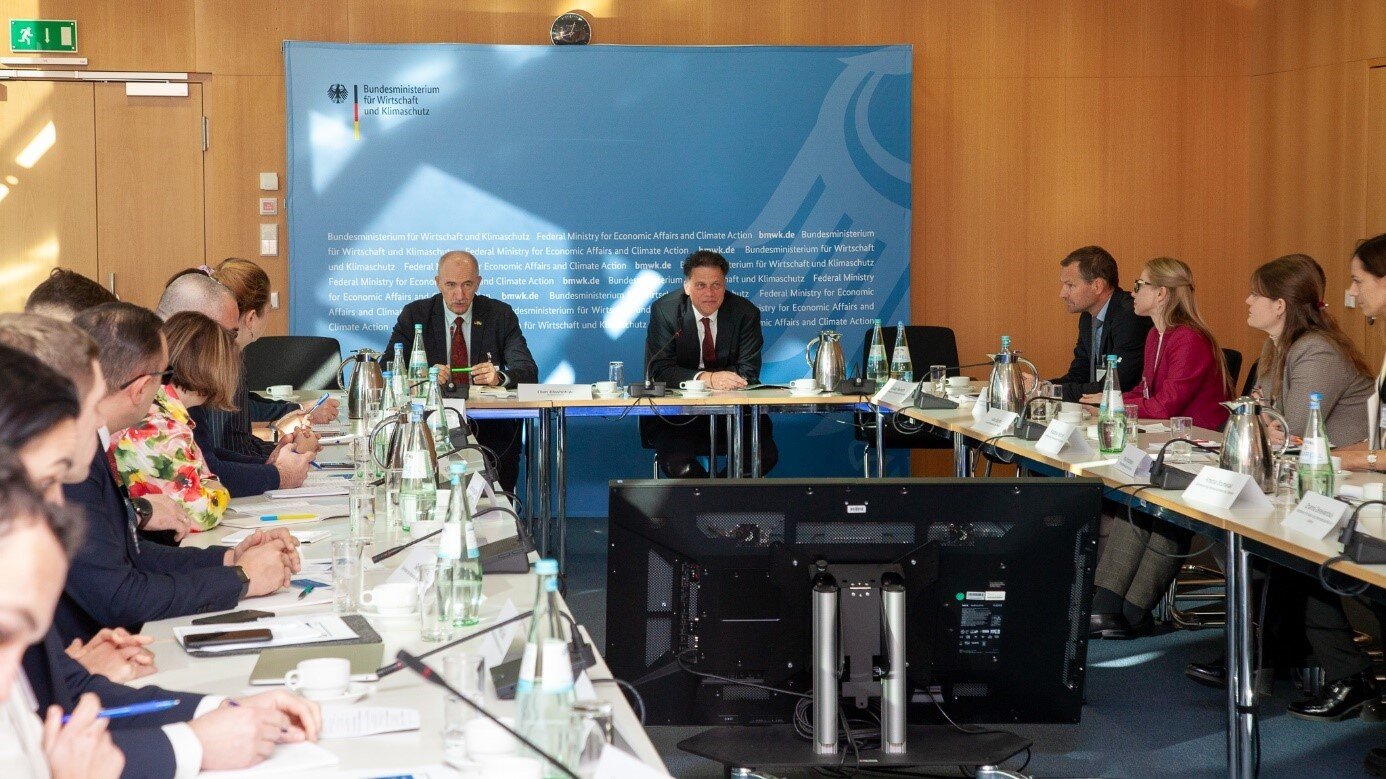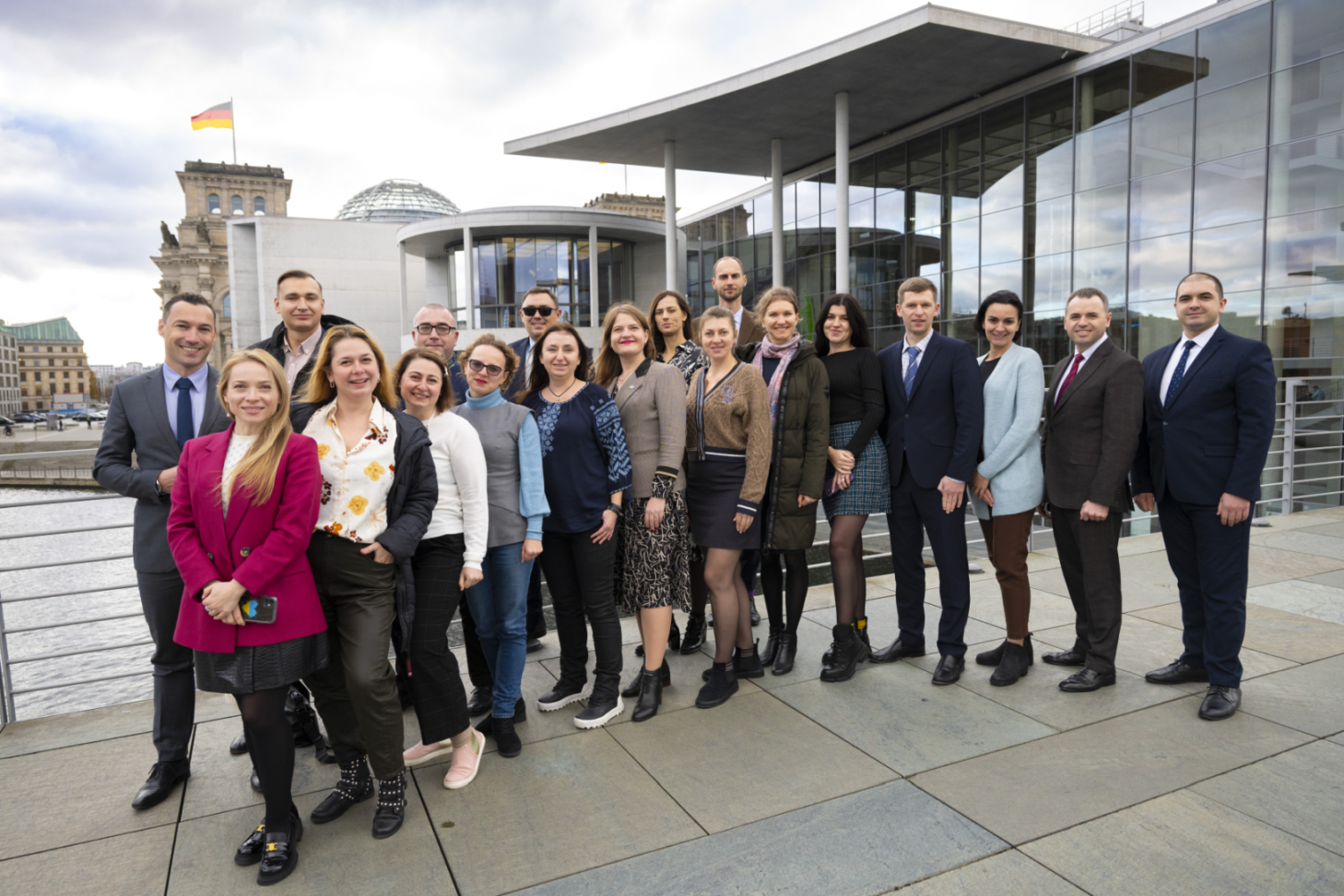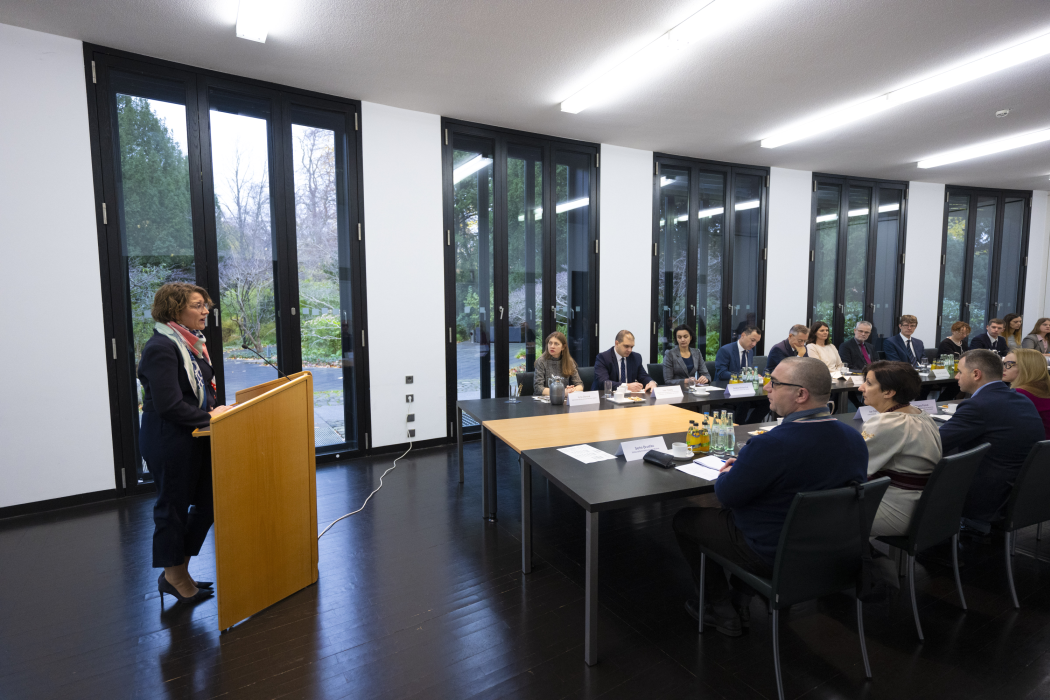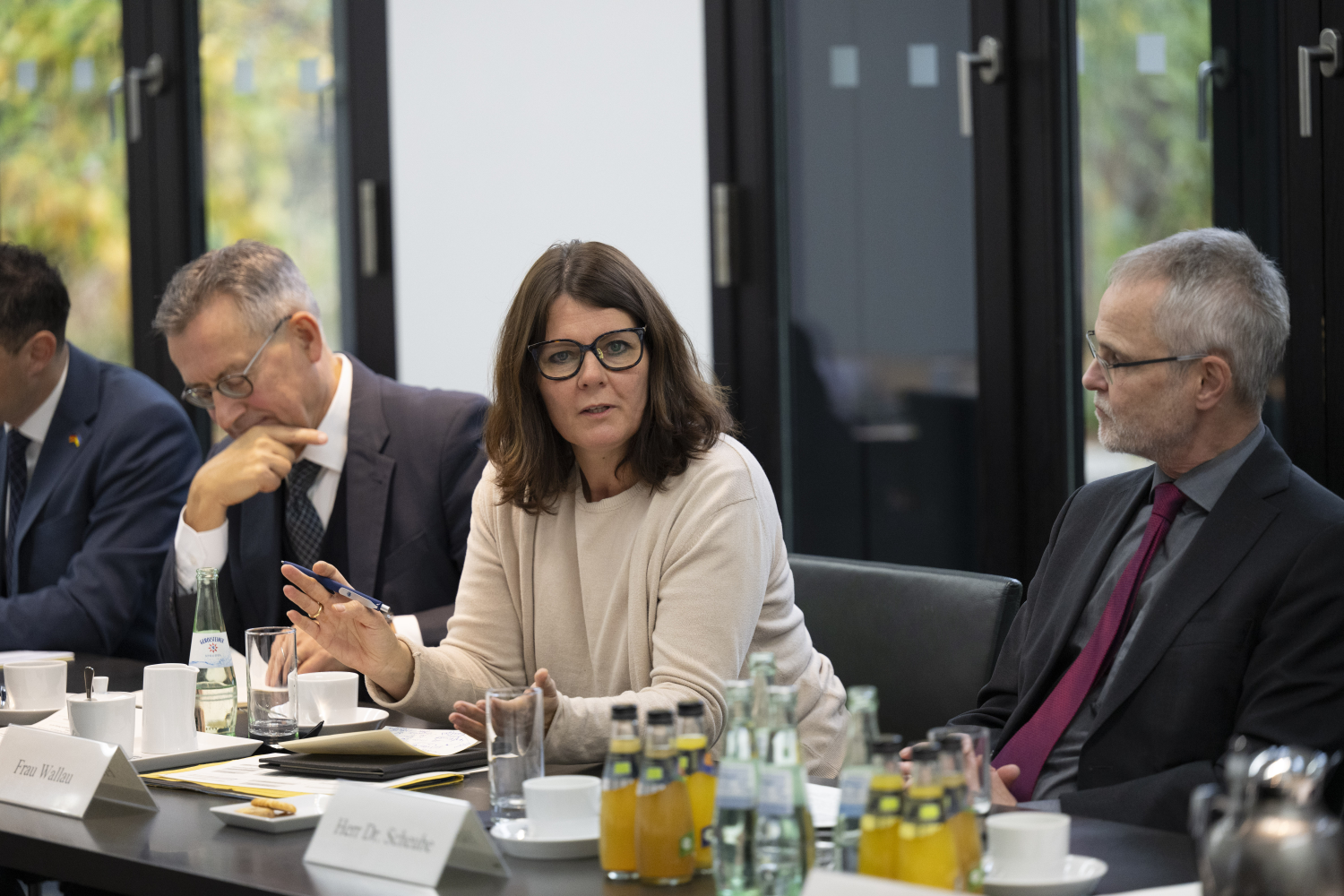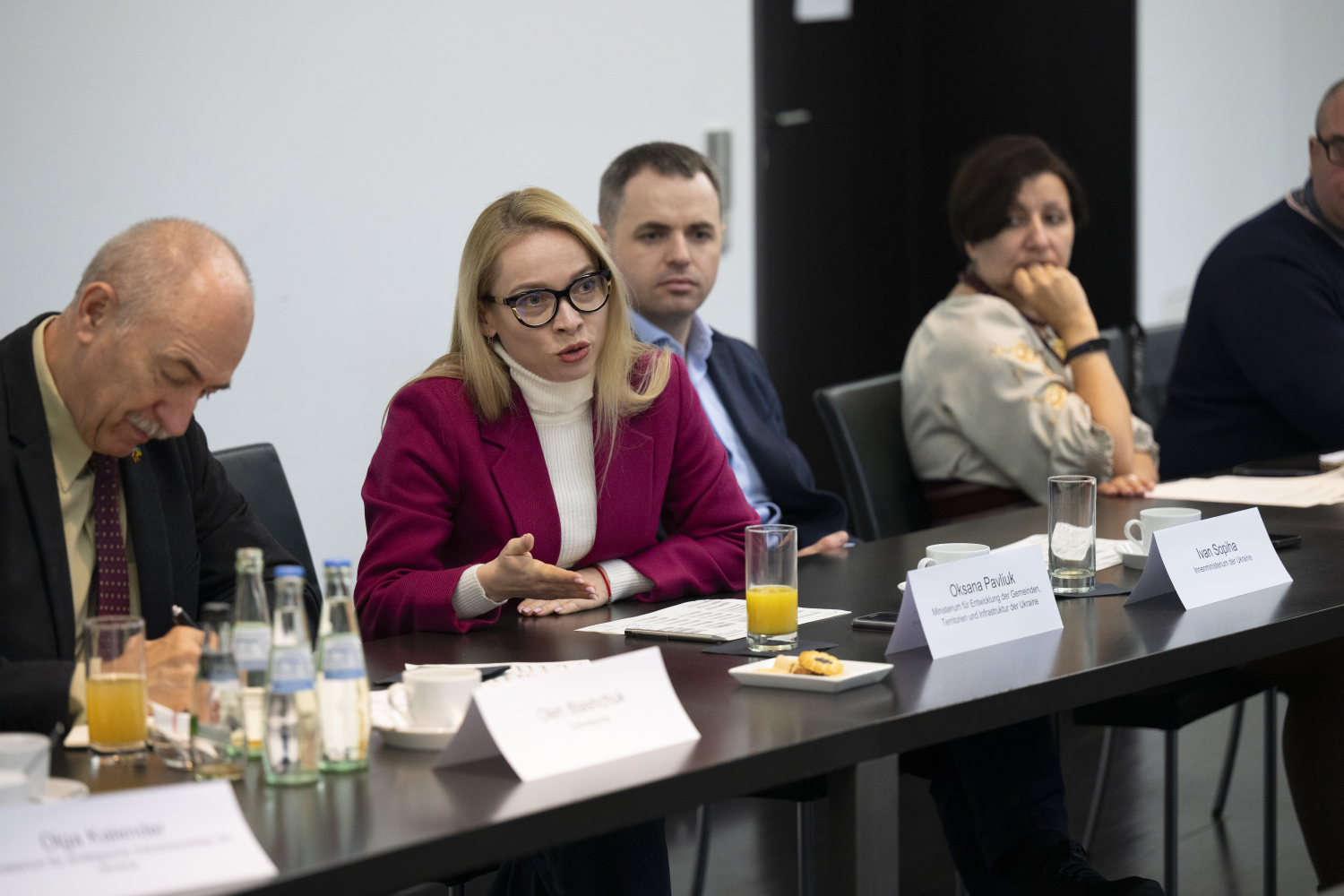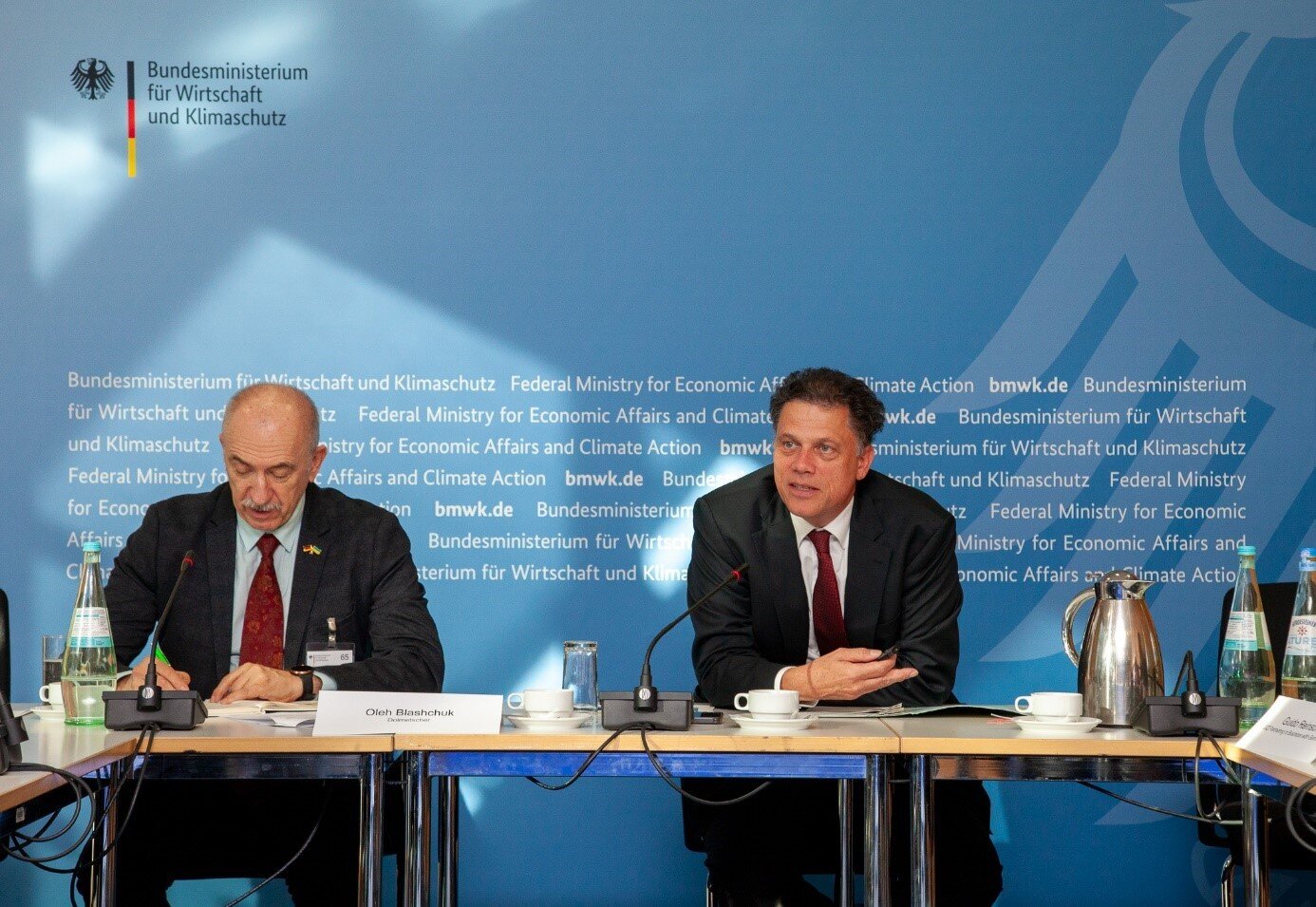Short official channel: Ukrainian and German government officials in Berlin
As part of the Partnering in Business with Germany programme of the Federal Ministry for Economic Affairs and Climate Action (BMWK), 19 executives from various ministries in Ukraine met in Berlin from 13 to 17 November 2023. The programme has been held annually since 2001 with the aim of improving cooperation at government level and supporting Ukraine’s rapprochement with the EU through professional exchange. This exchange has always focussed on the processes of cooperation between the German government and the EU institutions.
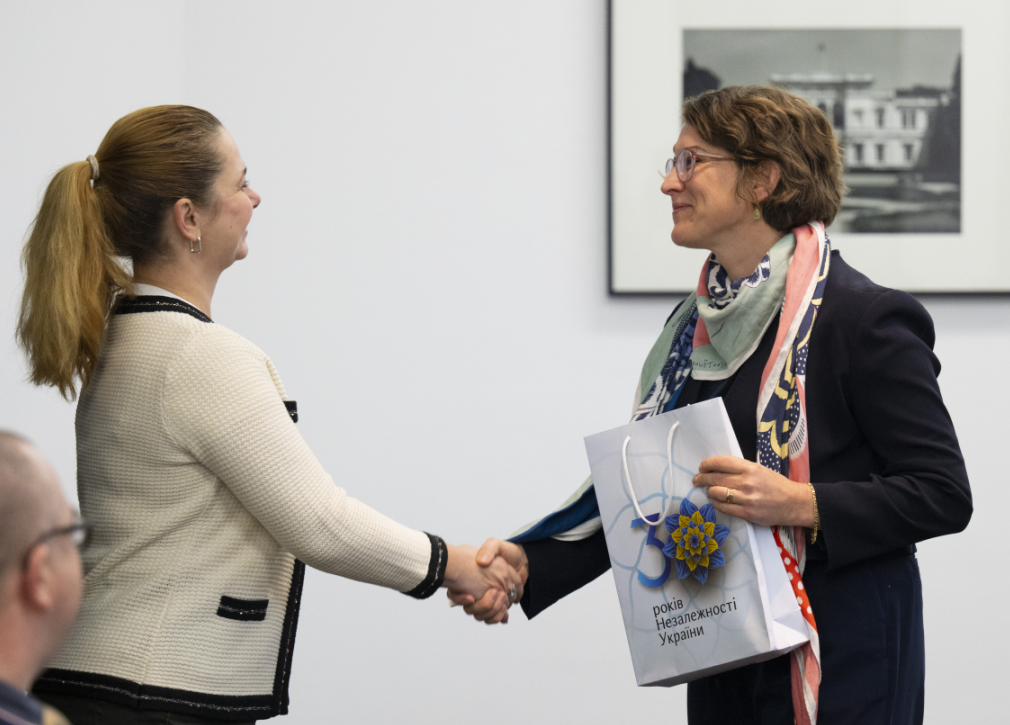
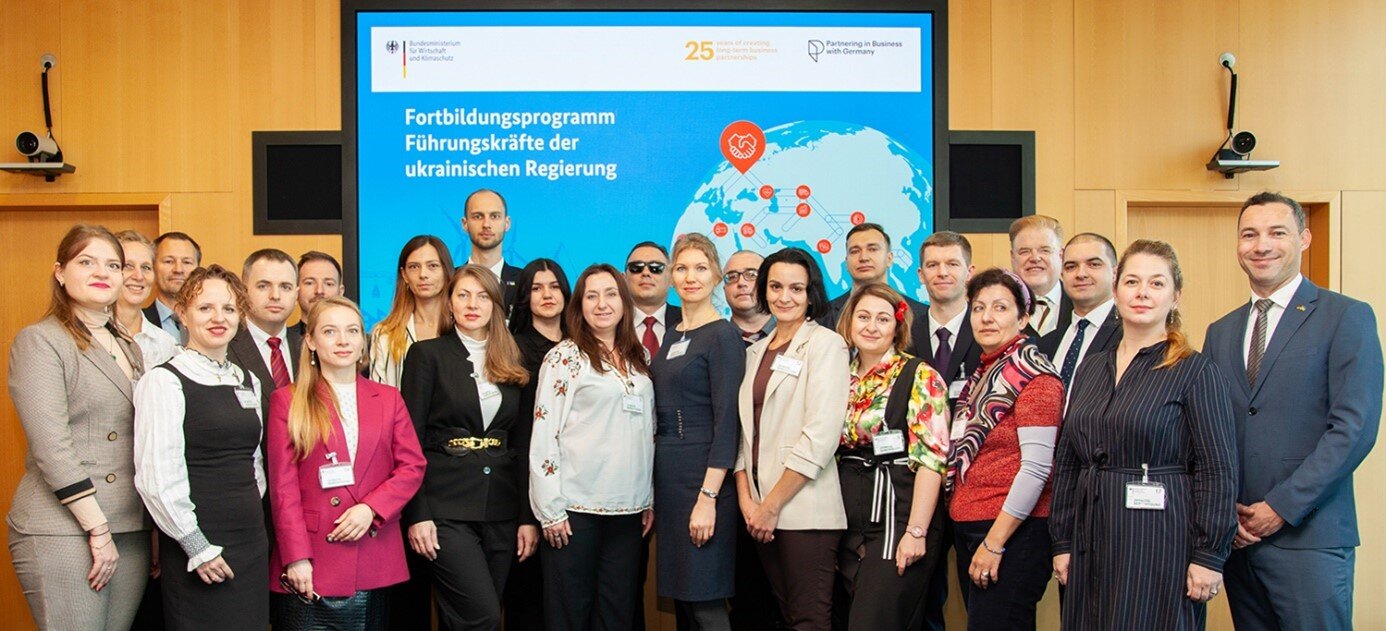
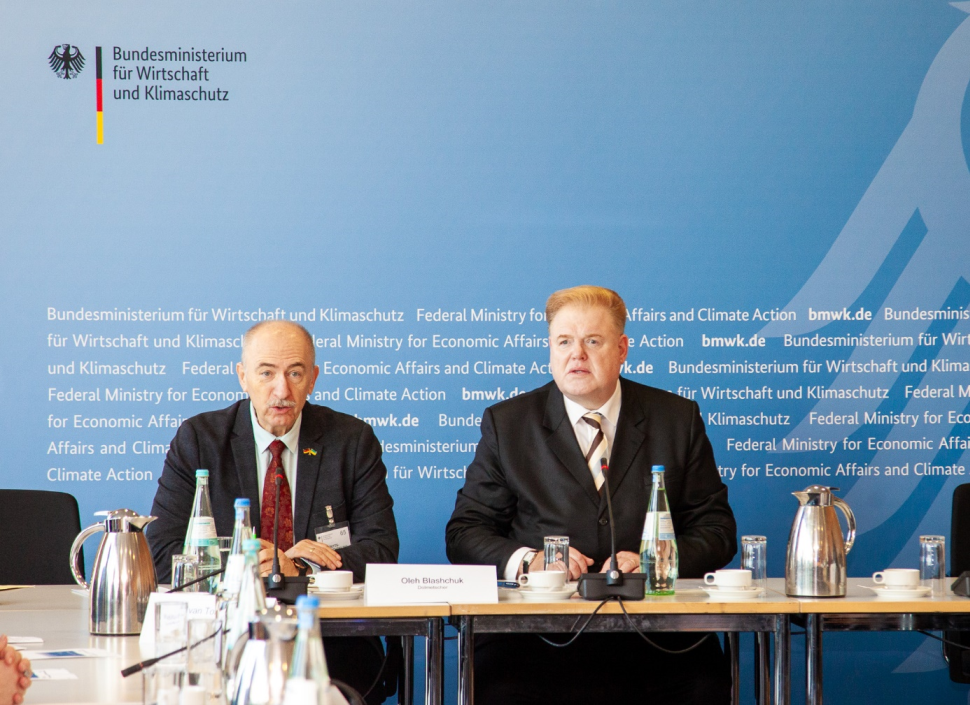
Ulrich Niemann, the Head of Division responsible for the Partnering in Business with Germany programme in the Foreign Trade Policy Department of the BMWK, welcomed the Ukrainian government employees to the BMWK. “We are delighted to see the great interest shown by the Ukrainian side in this dialogue and exchange , especially at a very difficult time for the country”.
On the first day of the study tour, the participants learnt about the diverse tasks of the BMWK, which is responsible for coordinating European policy within the Federal Government. In addition to the BMWK, the Federal Chancellery, the Office of the Federal President, the Federal Foreign Office, the Federal Ministry of Justice, the Federal Ministry of Finance and the Federal Press and Information Office also organised information and exchange sessions. A total of 23 thematic presentations and discussion rounds provided many new insights and a lively exchange between the Ukrainian and German government employees.
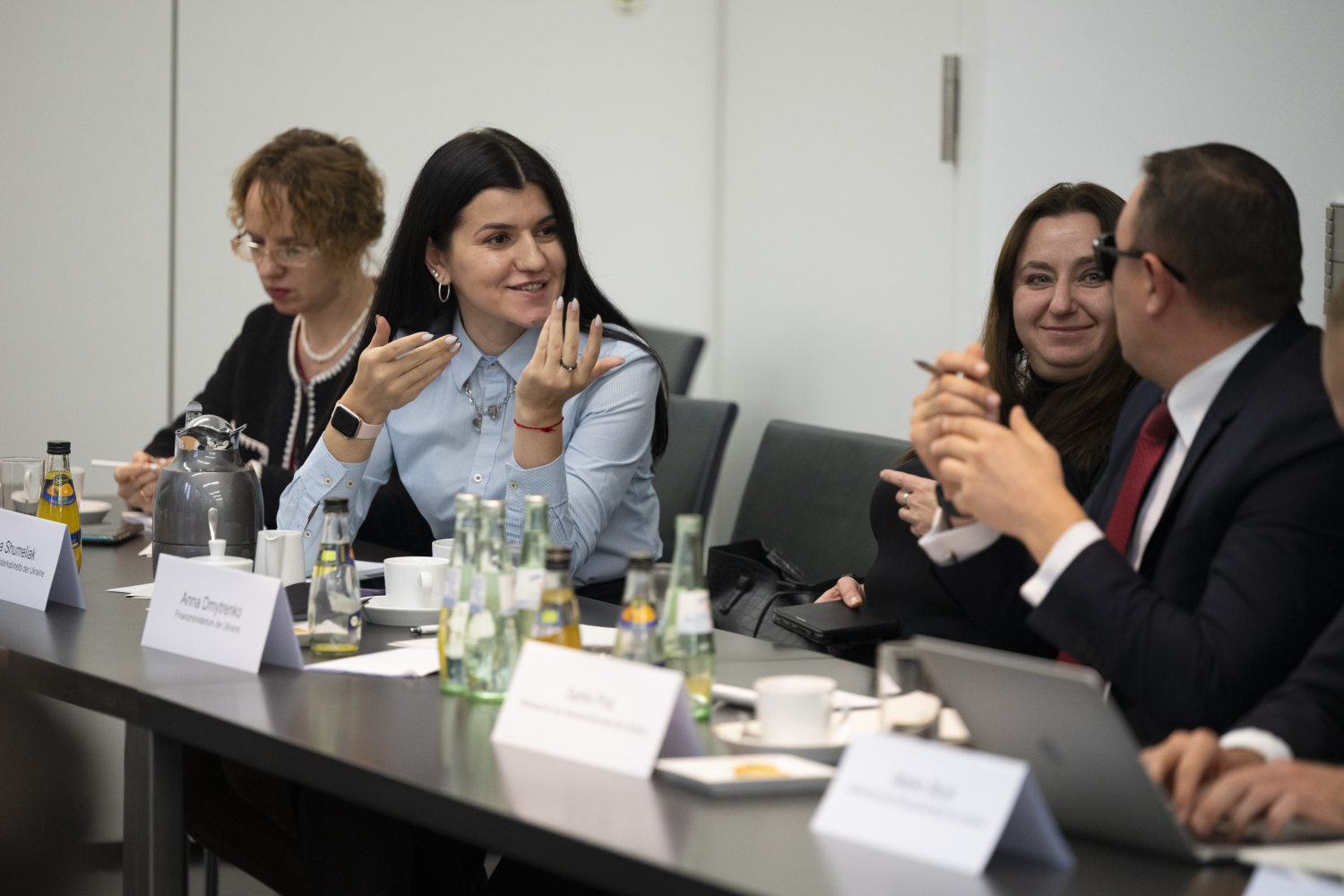
The range of topics was broad: from bilateral economic relations between Germany and Ukraine, coordination of Ukraine’s reconstruction and fundamental issues of coordinating cooperation with the EU to legislative procedures in Germany, foreign trade instruments of the BMWK, international energy and climate policy or twinning, TAIEX and administrative partnerships.
“The topics of discussion gave us a deep insight into issues of EU cooperation and made many things on the path to the EU easier to understand. We have to take huge steps to become a member state of the EU. The programme is helping us to do this,” concluded Olena Riabtseva, Deputy Director of the Investment Department at the Ukrainian Ministry of Economy, at the end of the study trip.
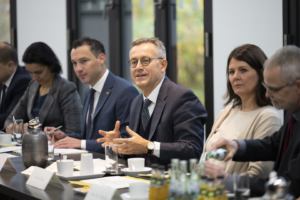
Particular attention was paid to the structures and procedures within German authorities and ministries. After all, they serve to promote understanding and facilitate cooperation between the two countries. Oksana Pavliuk from the Ministry of Development of Communities, Territories and Infrastructure of Ukraine emphasised: “My ministry is responsible for the reconstruction of Ukraine. Understanding the connections between the processes and work in the EU and between Germany and the EU was extremely valuable for me.” Olga Kalender, from the Ministry of Strategic Industries of Ukraine also confirmed that “EU integration processes are relevant for every official in Ukraine. It was therefore very important for all of us to learn about cooperation, coordination processes, responsibilities and challenges in relation to the EU using Germany as an example.” She also emphasised that “the contacts we made during the programme are very valuable for our work.”
But it was not only the professional added value that was important: “It was very important for me that the German colleagues emphasised the fact that they are also personally on the side of Ukraine,” said Oksana Pavliuk.
